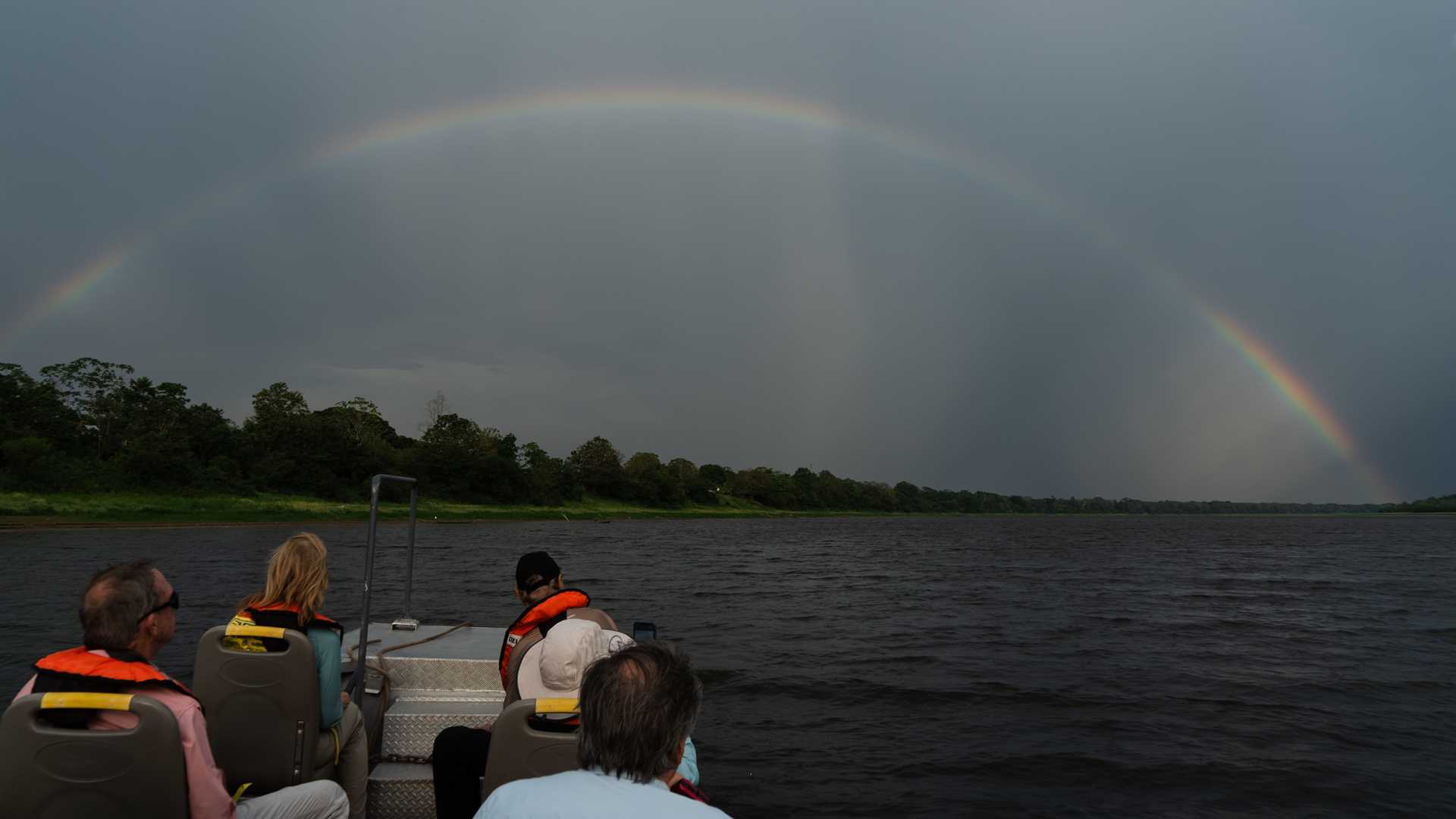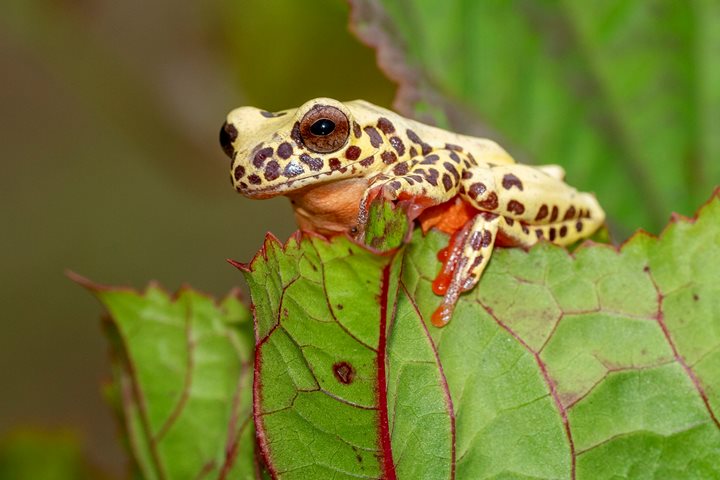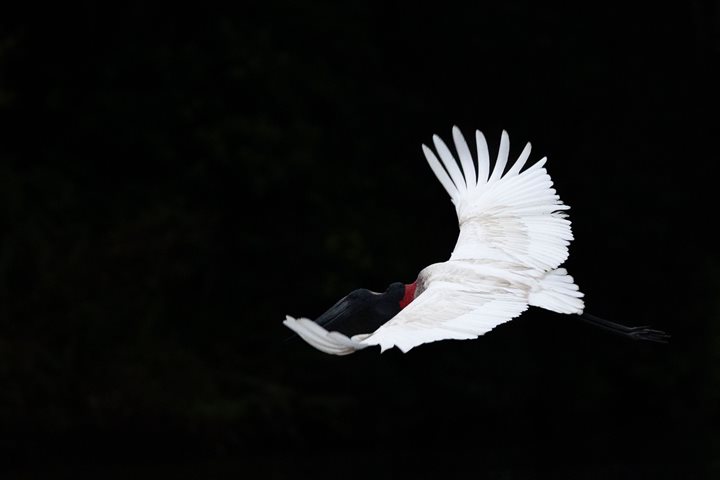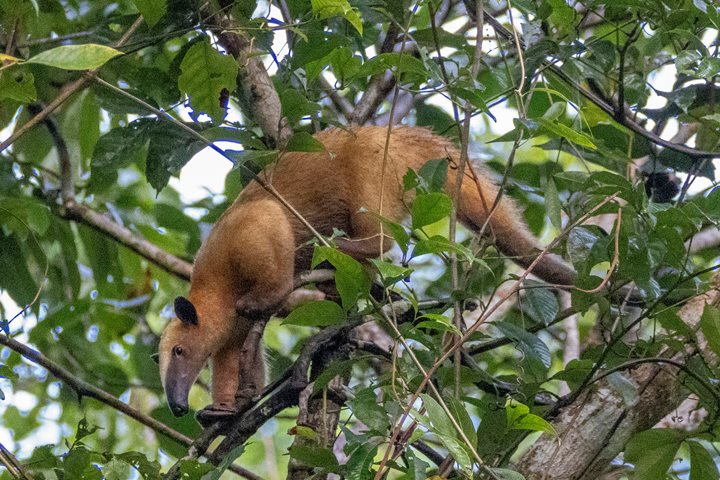We began our first day in the Amazon by taking a skiff ride with grey and pink dolphins in the confluence of the Marañón and Ucayali Rivers, the starting point of the mighty Amazon River.
5/31/2025
Read
Delfin II
Marayali River, Amazonas Village, Peru
Leaving Delfin II at 06:00 for our morning skiff ride, we explored the Marayali River. The birds were up and working on obtaining breakfast while the three-toed sloths chose to sleep the morning hours away. On our way back to the ship, we encountered a snail kite having its namesake prey for breakfast right in front of us! The rest of the morning was spent at Amazonas Village getting an introduction to life along the river. Demonstrations of how to get sugar water out of cane, how to make and dye fiber for baskets and other items, as well as food preparation were given. We chatted with children who had monkeys as pets! Our evening was topped off by a toast to the beginning of the actual Amazon River, where the Marañon and Ucayali Rivers converge. Salud! This is my final daily expedition report as a full-time Lindblad employee. I am retiring after 21 years as a National Geographic certified photo instructor and naturalist, ready to begin a new life of travel and exploration. I want to give a big thank you to all of those Lindblad guests whom I have traveled with over the years, and I will leave you with these words: Travel as often as you can, as far as you can, for as long as you can. May God and your luggage be with you!







